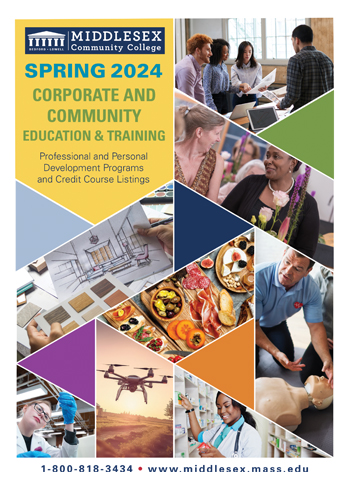Professional Development
at MCC
Research on Collaboration in Learning
The articles below include some of the most recent research on collaboration, one of the Core Student Success Skills being promoted by the Strategies for Success program at Middlesex. We encourage faculty and staff to access full text copies of these articles through Middlenet.
Hansen, E., Indiana Univ., B., & And, O. (1991). Collaborative Learning in Higher
Education. Proceedings of the Teaching Conference (Bloomington, Indiana, October 11-12,
1990). Panel Discussions and Selected Presentations. Retrieved from ERIC database.
This conference report contains selected presentations and panel discussions concerning
the experiences of faculty and students with learner-oriented approaches to college
teaching. Following a welcome address by Kenneth R. R. Gross-Louis and keynote addresses
by Faith Gabelnick and Linda Harasim, papers are organized in two categories: "Collaboration
in the Classroom" and "Computer-Mediated Collaborative Learning." Papers on classroom
collaboration are as follows: "Collaborative Classrooms: Building a Community of Writers,"
(Sharon Hamilton-Wieler); "Making Connections: Minority Students and Collaborative
Learning," (Laura F. Smith, Gladys F. DeVane); "Study Guides, Non-Traditional Teaching,
and Non-Traditional Students," (Miriam Helen Hill); "Using Collaborative Learning
to Help Promote Conceptual Change in Science," (David Maloney); "Collaborative Learning
in Physics? Impossible! And Yet...," (Bennet B. Bradson); and "The Chemistry Laboratory:
A Site for Collaborative Learning," (Wilmer K. Fife). Papers concerning computer-mediated
collaborative learning are: "The Social Context of Networked Learning: Computers as
Medium," (Helen Schwartz and Kristin Froehlke); "Hypertext as a Medium for Student
Collaboration," (Kenneth Davis); "Supporting Learning with Process Tools," (David
A. Goodrum and Randy A. Knuth); "Computer Conferencing for Collaborative Learning
in Large College Classes," (Edmund Hansen and others). Panel discussions concerned
the following topics: (1) innovative ways of handling classes with large enrollment,
particularly at larger universities; (2) positive features of collaborative learning
in general; (3) ways in which the instructors on the panel and in the audience had
worked to increase the amount of writing in their classes and the quality of that
writing experience; and (4) three different projects in which students had taken on
major responsibility for their realization. References follow papers. Contains a 79-item
bibliography. The conference agenda is appended.
Horn, S. (1997). Ideas in Practice: Extending Collaboration Beyond the Developmental
Classroom. Journal of Developmental Education, 21(2), 26-33. Retrieved from ERIC database.
Presents examples of developmental students who support each other both personally
and academically during the transitional first year of college. Describes the learning
communities program, in which linked developmental classes specifically encourage
cross-disciplinary learning and peer collaboration. Emphasizes the necessity for students
to take the initiative in supporting each other, both academically and socially. Contains
12 references.
Trentin, G. (2009). Using a Wiki to Evaluate Individual Contribution to a Collaborative
Learning Project. Journal of Computer Assisted Learning, 25(1), 43-55. Retrieved from
ERIC database.
One critical issue arising in the educational use of collaborative learning concerns
the teacher's difficulty in evaluating the contribution and participation of each
student in group-work. This article aims to illustrate and discuss a methodology that
enables evaluation of the collaborative learning process based on co-writing in a
wiki environment. After considering the effectiveness of co-writing as a strategy
of collaborative learning, the article will highlight issues regarding methods for
evaluating each student's contribution to the collaborative process and to the group's
overall action. A solution will be proposed to address the problem.
